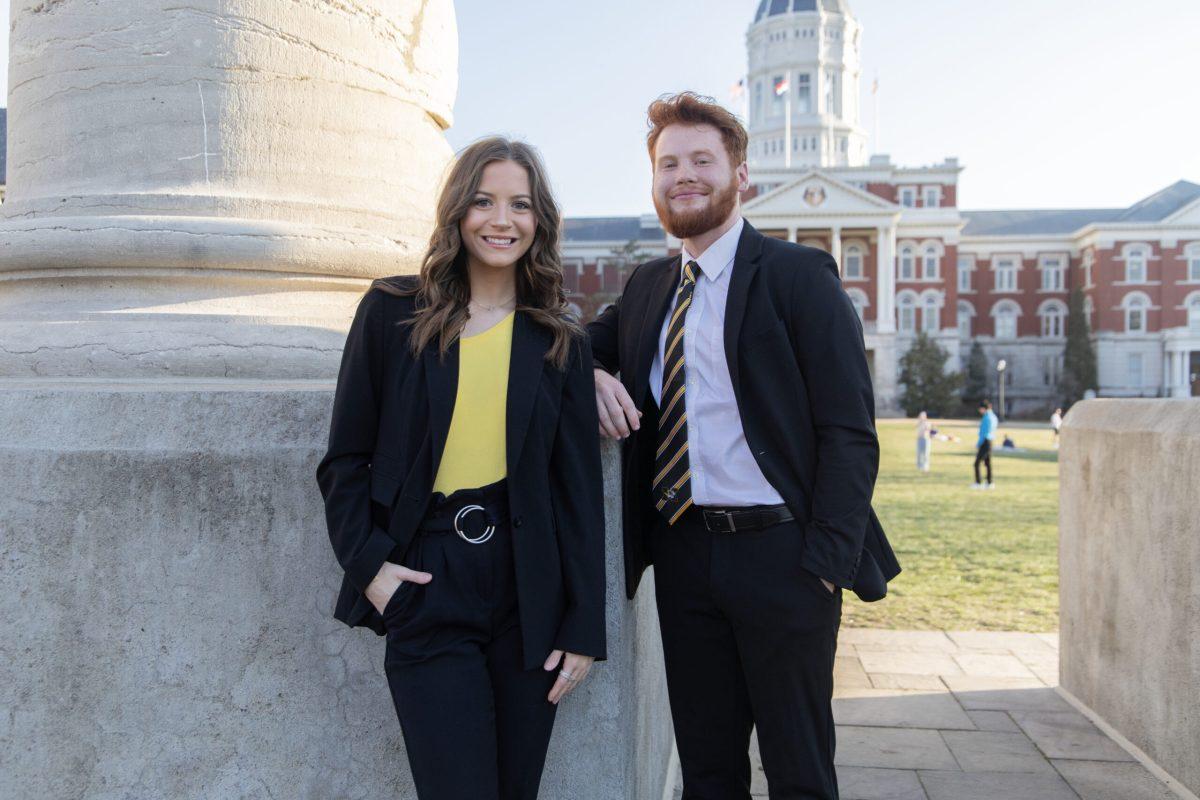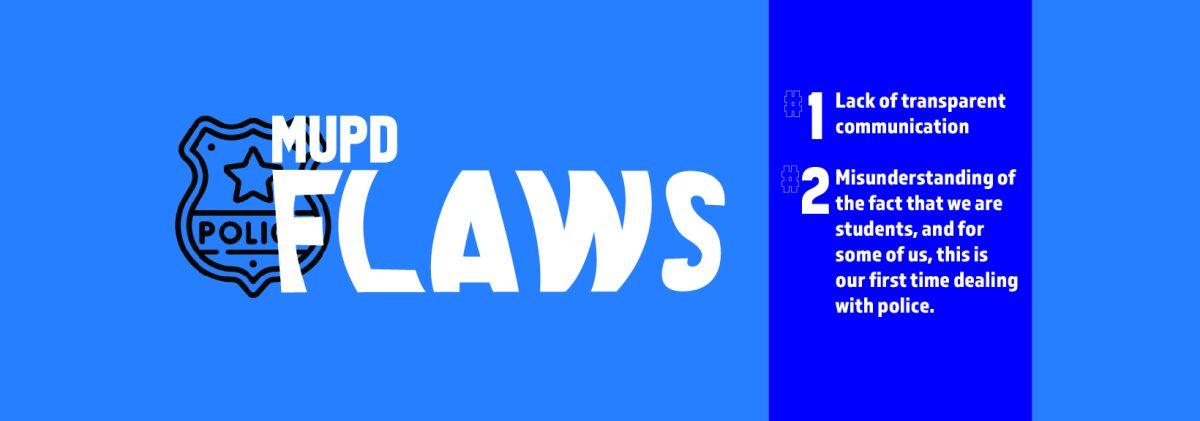Dear Maneater Editorial Board:
I’m writing in response to the editorial “Provost must be a voice for faculty, students.” The editorial expressed that the Provost should be an advocate for faculty and students, and I completely concur with this sentiment. However, I wanted to take this opportunity to correct a significant inaccuracy in the editorial. It stated that The Mizzou Advantage initiative provides bonuses to high-performing faculty. The bonuses that the article was referring to come from a 2 percent reallocation mandated by the University of Missouri System in 2013. None of the money from the 2 percent is allocated to The Mizzou Advantage budget, nor does our initiative fund bonuses of any kind. In fact, like all of campus, Mizzou Advantage is also subject to the annual 2 percent reallocation. With this said, I thought this would be a great opportunity to clarify how The Mizzou Advantage initiative contributes to the campus.
The initiative focuses on MU’s interdisciplinary strength across four areas (Food for the Future, Media of the Future, One Health/One Medicine and Sustainable Energy) and on improving MU’s standing within the AAU. In the broadest sense, the initiative has five aims: discovery, networking, education, communication and advancement.
**Discovery**
The Mizzou Advantage has provided seed funding for a variety of promising research projects. Some notable examples: Dr. Chung-Ho Lin identified compounds in red cedar trees which may fight skin cancer. Dr. Bill Jacoby investigated a carbon-burning process that could generate clean water for third-world countries. Dr. Fred vom Saal demonstrated that pregnant women’s exposure to chemicals in everyday plastics may predispose fetuses to obesity. These projects, and 65 others, establish MU as a destination for research in the university’s areas of strength, attract high-profile external research partners and bring MU additional research dollars from external funding agencies.
The Mizzou Advantage initiative also partners with schools and colleges across campus in supporting hires which link together two or more campus areas. For example, Dr. Charlie Maitz’s research in radiation oncology crosses between the veterinary school, the medical school, the MU Research Reactor and the department of chemistry. As another example, Dr. Ellen Wan investigates new technologies in biomass, spanning the colleges of Engineering and Agriculture, Food and Natural Resources. To aid existing faculty and staff to learn about subjects outside their area of expertise, The Mizzou Advantage also offers professional development awards and travel funds to support investigation and collaborations for new undertakings.
**Networking**
The Mizzou Advantage initiative was founded on the belief that we can do more together than we can alone. Each area of strength is led by a facilitator — accomplished faculty recognized for their knowledge and ability to bring together disparate groups — in pursuit of knowledge and innovation.
The initiative also supports a number of networking activities. For instance, working with the MU Conference Office, The Mizzou Advantage funds national and international conferences on campus. It coordinates with the Chancellor’s office to bring distinguished speakers to the university. In conjunction with the Office of Economic Development and MU Extension as well as other outreach units, The Mizzou Advantage makes external connections.
**Education**
The initiative provides fiscal, networking and other support to campus scholars who are developing interdisciplinary educational initiatives. Some examples include new graduate certificates in energy, plant life sciences and health regulatory affairs as well as development of a new digital storytelling major and big data curriculum. All of these are in different stages of development.
The Mizzou Advantage also funds undergraduate research teams, providing undergraduates with opportunities traditionally available only to graduate students. It provides travel funds for undergraduate and graduate students to attend academic conferences. The initiative also supports off-campus education. For example, The Mizzou Advantage supported the development of energy education offered through MU’s Midwest Energy Efficiency Research Consortium. The Mizzou Advantage initiative has sponsored the development of training to individuals, community leaders, industry professionals and government officials.
**Communication**
The Mizzou Advantage gives the university a framework for sharing its story with the world at large. Since 2010, print, radio and television ads have been produced to communicate MU’s expertise. In addition, an online “communicate-on-demand” system will launch in 2015. The tool will offer professionally produced promotional print pieces, digital pieces, print ads, videos and PowerPoint slides which highlight assets, researchers and success stories from across the MU campus. The tool will be available to all faculty and staff to assist in their communication needs.
**Advancement**
Similar to communication opportunities, The Mizzou Advantage gives advancement professionals a way to frame MU’s expertise. A donor has already given a $2 million endowment for activities in the four areas of strength, and The Mizzou Advantage will be a theme in MU’s next major fundraising campaign.
The initiative also helps guide internal advancement decisions. When Enterprise Holdings donated $2 million in 2013 to support sustainable energy research, a biofuel network created through The Mizzou Advantage was already in place. The gift went to a team led by biofuel researcher Dr. Shibu Jose; their work is underway and looks very promising.
As the editorial mentions, The Mizzou Advantage initiative has been integrated into the MU Strategic Operating Plan. The interdisciplinary hires and the investment into areas of strength serve to recruit well-qualified faculty, and the initiative supports MU’s goal of enhancing interdisciplinary curriculum and our position within the AAU.
Through the first three calls for proposals, the Mizzou Advantage initiative disseminated more than $3 million to the campus for high-impact conferences, research and instructional development support. As reported by the faculty and staff who were funded, these projects have contributed to bringing over $9 million in additional funding to the university. The projects – which brought 230 prominent speakers to MU and gave rise to 94 publicity interviews and articles about the university – have generated 346 scholarly presentations, 36 academic publications and even one patent. A fourth round of funding was awarded to campus researchers in 2014 for $3.5 million and we are eager to see the great things that our talented faculty, staff and students will achieve with the support.
Sincerely,
**Jerry Frank**
_Faculty Fellow of The Mizzou Advantage_











